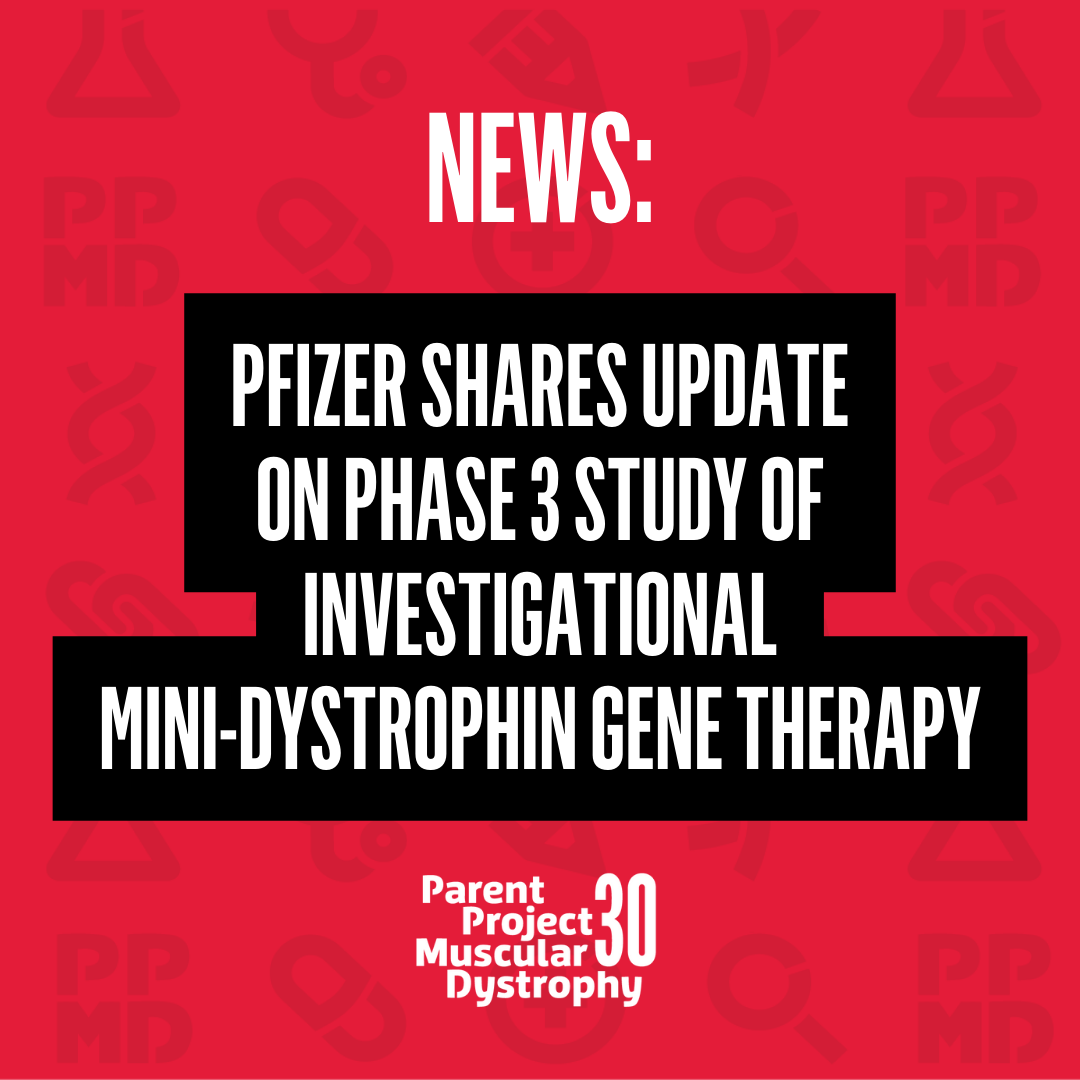
PPMD is deeply disappointed to share that Pfizer Inc. announced today that CIFFREO, a Phase 3 randomized, double-blind, placebo-controlled study evaluating the company’s investigational mini-dystrophin gene therapy, fordadistrogene movaparvovec, in ambulatory patients with Duchenne did not meet its primary endpoint of improvement in motor function among boys 4 to 7 years of age treated with the gene therapy compared to placebo. The primary endpoint in the study was assessed by change in the North Star Ambulatory Assessment (NSAA) at one year after treatment.
Additionally, Pfizer shared that key secondary endpoints, including 10-meter run/walk velocity and time to rise from floor velocity, also did not show a significant difference between participants treated with fordadistrogene movaparvovec and placebo.
Pfizer indicated that the company plans to share more detailed results from the study at upcoming medical and patient advocacy meetings, including PPMD’s 30th Annual Conference, June 27-29, 2024, in Orlando, Florida, with the goal of ensuring that learnings from this trial can help improve future clinical research and development of treatment options for those living with Duchenne.
According to Pfizer, the company will continue to closely monitor all participants enrolled in the study and is evaluating appropriate next steps for the program.
The results from the CIFFREO study is a discouraging blow to our community, particularly devastating to those who participated in the study. We recognize that every setback is part of the journey toward advancing therapies for Duchenne and Becker, and we draw strength from the resilience and courage of our community.
We want to acknowledge and thank the brave patients and families who participate in clinical trials, despite the absence of guaranteed benefit. Your contributions are invaluable in helping to bring therapies to all in our community.
We anticipate further updates from Pfizer regarding their next steps and future plans, and we thank Pfizer for their long term commitment to the Duchenne community. PPMD will continue to work closely with researchers, industry partners, and the entire Duchenne community to ensure that every effort is made to bring safe and effective treatments to those who need them.
Read Pfizer’s press release here.
Read Pfizer’s community letter:
June 12, 2024
Pfizer has announced that our Phase 3 CIFFREO study evaluating fordadistrogene movaparvovec did not meet its primary endpoint of improvement in motor function among ambulatory boys 4 to 7 years of age treated with this gene therapy compared to placebo. Key secondary endpoints also did not show a significant difference between participants treated with fordadistrogene movaparvovec and placebo.
We are deeply disappointed that the data do not reflect the results that were hoped for and recognize this is a significant setback for the DMD community that is awaiting improved treatment options. More detailed results will be shared with the scientific and patient communities at upcoming medical and patient advocacy meetings. We are hopeful that these efforts will play a role in informing and continuing to improve the development of future DMD treatments.
It has long been our goal to provide much-needed treatment options for boys living with DMD as we’ve worked closely in partnership with the DMD and scientific community for more than 10 years, and we will share additional information on these results as they become available. In the meantime, we would be remiss if we did not recognize and thank the participants, their supportive families, and the trial investigators for their incredible dedication and contributions to this very important research.
Sincerely,
The Pfizer DMD gene therapy team



 by: Parent Project Muscular Dystrophy
by: Parent Project Muscular Dystrophy

